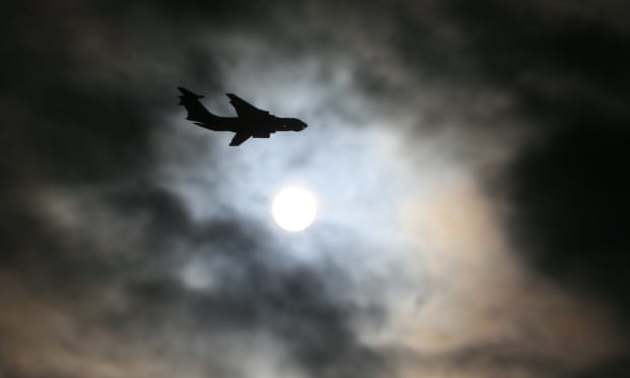For several months, the US discusses a possible withdrawal from the Open Skies Treaty (OST). It is expected, the official statement by the United States may follow in September. Joint statement urges US to remain in Open Skies Treaty, designed to reduce risk of war breaking out through miscalculation.
A group of retired Nato generals and defence officials have urged the US to stay in a 1992 treaty with Russia on mutual reconnaissance flights, but also warned European capitals to prepare for a US exit, The Guardian writes the article Europe must prepare for US exit from vital Russia treaty, former Nato generals warn.
The US defence secretary, Mark Esper, and the secretary of state, Mike Pompeo, are said by US sources to be determined to leave the Open Skies Treaty (OST), which European leaders and arms control advocates believe reduces the risk of a war breaking out through miscalculation by adding to mutual transparency.
A joint statement by a group of 16 retired military commanders and defence ministers, coordinated by the European Leadership Network (ELN) released on Tuesday, said the OST was a vital pillar of stability between nuclear powers.
“With 34 states parties, including the United States, Russia and most European countries, the multilateral accord has facilitated 1,517 short-notice and unarmed overflights,” the statement said. “Throughout its operation, the treaty has increased military transparency and predictability, helped build trust and confidence, and enhanced mutual understanding.”
If the US does withdraw from the treaty, it will lose the right to carry out overflights of Russia, but Russia would still be able to fly over US military facilities in Europe.
The signatories to the statement include General Sir David Richards, the former UK chief of defence staff, General Klaus Naumann, the former chief of staff of the German armed forces, and General Bernard Norlain, France’s former Air Defence Air Combat commander.
They suggested Europe could be the biggest loser from a US withdrawal “While the intelligence and confidence building advantages are limited for the US itself, they are very real for America’s Nato allies. The strategic benefits to the US of ‘stability in the Euro-Atlantic region’ are also very real,” they said.
But if the US does leave the treaty, the statement argues its Nato allies should stay in the agreement, noting that European states perform 55% of the flights and are the subject of nearly 59% of Russian overflights. European states do not have the satellite-surveillance capacity of the US, so are particularly reliant on Open Skies flights, which can be carried out under cloud cover.
It calls for the remaining parties to the treaty to meet within two months of a US withdrawal to discuss how the agreement would function without Washington. That would involve limits on what information Nato members could share with the US.
“It’s important for western European governments, to be prepared for this,” said Andreas Persbo, ELN research director. “For them this treaty has some value, and it would be in their interest to continue flying over Russia, and Russia would like to continue to overfly western Europe. The question is can that be maintained without Russia exacting too heavy a price from western governments.”
The former officers and defence ministers urged Russia to drop infringements of the treaty, cited by its US opponents as reasons for withdrawal: limitations on flights over the Baltic enclave of Kaliningrad and the creation of an exclusion corridor along the border of South Ossetia and Abkhazia.
***
Meanwhile, Moscow claims that Russia did not violate Article VI of OST by not allowing to carry out the part of the already agreed plan for the US-Canadian mission during the Center-2019 exercises in September 2019. In late April, the Russian Foreign Ministry issued a comment in connection with the “signal” version of the US Department of State report on compliance with international treaties and agreements in the field of arms control, disarmament and non-proliferation. The document reads that the introduction of the ban was caused by the difficulties of ensuring flight safety within the framework of OST in the rapidly changing environment during the active phase of the exercises. In accordance with the agreement, the observing party was offered an alternative time for the flight over this site, but the offer was rejected. Moreover, during recent hearings in the US Congress, independent experts did not agree with the qualification of Russia's actions as a “violation” of obligations under OST. Smolenskaya Square says that the United States deliberately keeps silent about their own multiply problems with the implementation of OST.






